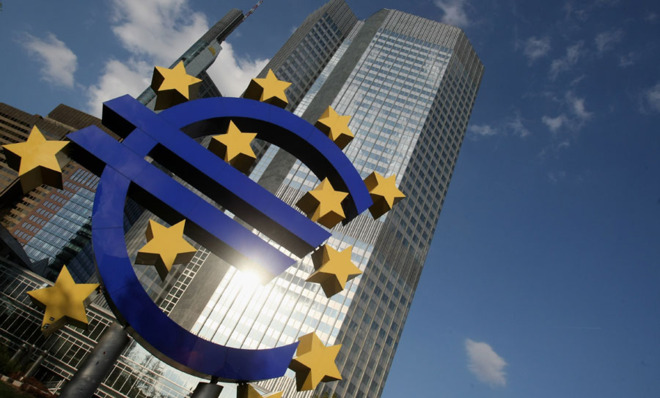How healthy are Europe's banks?
Everything you need to know, in four paragraphs

A free daily email with the biggest news stories of the day – and the best features from TheWeek.com
You are now subscribed
Your newsletter sign-up was successful
Could this be the "beginning of the end" of Europe's financial woes? asked Jason Karaian at Quartz. With global markets increasingly concerned that the Continent is teetering on the brink of another recession, the European Central Bank delivered a bit of good news last week, releasing the results of stress tests that scrutinized banks' ability to withstand another major financial crisis. "Embarrassed by three previous tests that proved far too tame," regulators spent the better part of a year poring over bank balance sheets in "unprecedented detail." Overall, 25 of the 130 banks that were tested "flunked." But in the 10 months since the ECB finished its detective work, 12 of the banks "have already raised enough capital to give them a passing grade." The remaining 13 failing banks need to raise a relatively modest $12 billion over the next year to bolster their financial footing.
It's "a Goldilocks result," said David Reilly and Helen Thomas at The Wall Street Journal. The outcomes of the tests aren't so bad that they "raise fresh doubts about the financial sector," and they aren't so rosy that they prompt questions about the accuracy and thoroughness of the tests. The results also "confirmed investors' long-held suspicions: Failures were concentrated in crisis-hit euro zone markets like Cyprus, Greece, and Italy." No big surprise there, said Tim Worstall at Forbes. Out of the 25 banks that failed, nine were based in Italy, whereas all the major banks in France and Germany emerged unscathed. Italy has a long way to go until its banking sector could be considered healthy, but the Italian banks that fared poorly, like Monte dei Paschi, "we already knew had serious problems." Even the worst off "failed only by a slim margin and can take some fairly simple (and cheap) steps to put matters right."
Europe's not out of the woods yet, said Mohamed El-Erian at BloombergView. While the stress tests will help lay the foundation "for a more durable recovery," there's still plenty of work to be done. The results will ideally encourage the banking sector to be more transparent, which will "lift the general cloud of uncertainty" over the euro zone and help spur economic growth. But realizing "the full benefit" of these results will require political leaders to push for "greater fiscal and political integration" and to resolve lingering debates over the relationship between austerity and growth. Politicians would be wise not to squander the opportunity.
The Week
Escape your echo chamber. Get the facts behind the news, plus analysis from multiple perspectives.

Sign up for The Week's Free Newsletters
From our morning news briefing to a weekly Good News Newsletter, get the best of The Week delivered directly to your inbox.
From our morning news briefing to a weekly Good News Newsletter, get the best of The Week delivered directly to your inbox.
The true victor here is the ECB, said The Economist. Led by Mario Draghi, the bank "is now regarded as the most credible institution in Europe — although admittedly competing in a field of pygmies" — and these results pave the way for the ECB to assume full authority over the Continent's banks, a reform that was devised to end the euro zone crisis. That's an important development; "ensuring that Italian banks are well regulated, say, is a prerequisite for Germany agreeing to bail them out" in the future. If all these tests do is further enhance the ECB's stature, then "much will have been achieved."
A free daily email with the biggest news stories of the day – and the best features from TheWeek.com
Sergio Hernandez is business editor of The Week's print edition. He has previously worked for The Daily, ProPublica, the Village Voice, and Gawker.
-
 Quiz of The Week: 14 – 20 February
Quiz of The Week: 14 – 20 FebruaryQuiz Have you been paying attention to The Week’s news?
-
 The Week Unwrapped: Do the Freemasons have too much sway in the police force?
The Week Unwrapped: Do the Freemasons have too much sway in the police force?Podcast Plus, what does the growing popularity of prediction markets mean for the future? And why are UK film and TV workers struggling?
-
 Properties of the week: pretty thatched cottages
Properties of the week: pretty thatched cottagesThe Week Recommends Featuring homes in West Sussex, Dorset and Suffolk